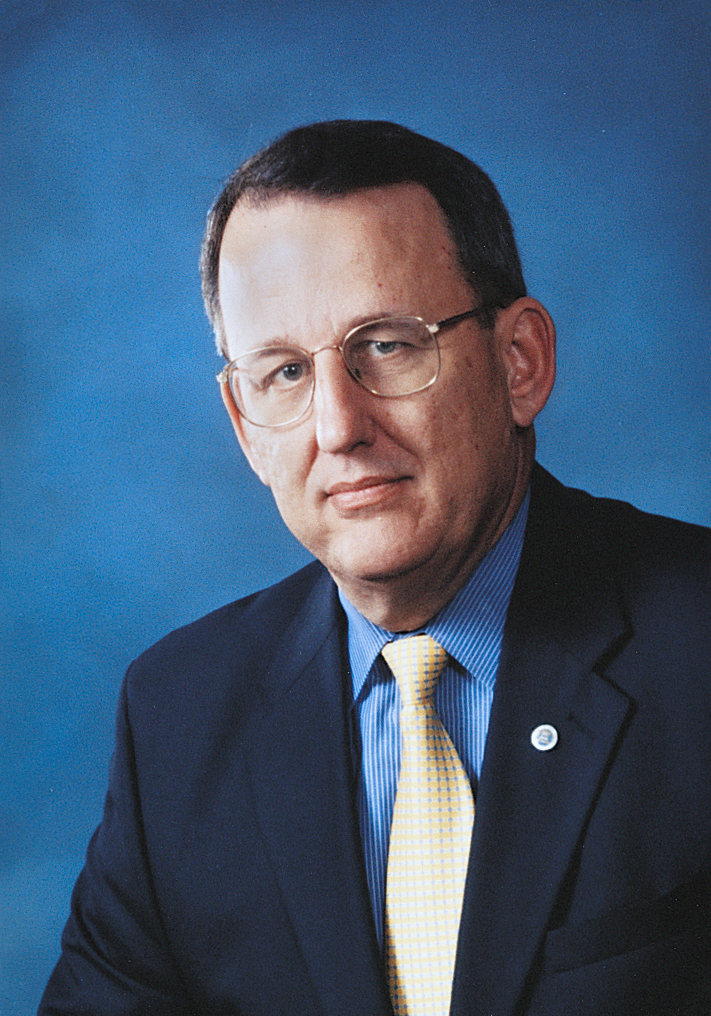Doing What's Best
Posted on Jan. 15, 2011Not since the late 19th century have both houses of the N.C. General Assembly been majority Republican. New legislative leadership in both chambers occurs as the UNC System welcomes a new president, Tom Ross ’75 (JD), who soon is expected to name a chief academic officer and a chief financial officer, among other new senior officers, for the system. And these changes come as a 2011-12 state budget will be approved — a budget for which there is a projected shortfall of as much as $3.5 billion.

Douglas S. Dibbert ’70
While some are concerned that new legislative leadership may mean that public higher education will be required to absorb substantial cuts, it is important to remember that support for our campus has long been bipartisan. The endowed professors fund, the Michael K. Hooker Higher Education Facilities Financing Act, the N.C. Cancer Hospital and the University Cancer Research Fund all enjoyed bipartisan legislative support. These investments by our elected legislative representatives have come to Carolina because they are good for all North Carolinians.
For instance, in fiscal year 1999-2000 — the last year prior to the General Assembly’s passage of the capital bond funding bill, which was overwhelmingly approved by voters — state appropriations to Carolina were $383 million while federal research funding earned by our faculty was $321 million. Ten years later, state appropriations to Carolina were $542 million and federal research funding was $740 million. And during the 10-year buildout, we added more than 6.7 million square feet of new space and renovated 2.4 million square feet, with a total budget of $2.3 billion. Of that, $515 million came from the higher education bond program.
The University Cancer Research Fund was approved in August 2007 to support innovative, life-saving cancer research. It also has been used to attract 67 of the nation’s top cancer researchers and retain another 14 of UNC’s most accomplished faculty members. The N.C. Cancer Hospital was dedicated in September 2009. The clinical home of the Lineberger Comprehensive Cancer Center, in its first year the cancer hospital had 130,000 patient visits — a 30 percent increase. And since its creation in 1985, the Endowed Professors Fund has provided Carolina funding to create 172 endowed professorships and brought in $112 million from donors and $46 million in state funds.
Our University will continue to have many alumni serving in the General Assembly. Of the 50 state senators, 15 are alumni and one is presently a UNC student seeking his master’s in health policy. Richard Y. Stevens ’70 — a former chair of the Board of Trustees and of the GAA Board of Directors, who earned three UNC degrees and has served as a UNC faculty member in the School of Government — will serve as co-chair of the Senate Appropriations Committee. In the 120-member state House of Representatives, 26 are Carolina alumni, including Rep. Paul “Skip” Stam ’75 (JD), who has been elected House Majority Leader.
Despite the generous support that higher education, particularly Carolina, has earned, with new leadership in the General Assembly and in the UNC System, determining how to balance the budget and provide needed support to all of education — K-12, community colleges and the UNC System — will be a daunting challenge. Few doubt that education is the economic engine that drives the North Carolina economy. But Carolina represents more than economic development; we also train teachers, nurses, social workers, doctors, dentists, pharmacists, research scientists, artists, lawyers, business leaders and others who greatly enhance the quality of life for all North Carolinians.
Resolving a $3.5 billion shortfall without jeopardizing North Carolina’s economic recovery, harming North Carolina educational systems, and putting at risk those most dependent on state-funded social services will require wisdom and courage. In recent years, our campus has cut $113 million from its budget, and the UNC System has directed us to plan for cuts totaling an additional 10 percent, or $52 million, for the coming year. The Board of Trustees voted in November to increase tuition 6.5 percent next year, an action that will offset only one-sixth of the anticipated 10 percent cut in state-appropriated funds. It is vital that these additional tuition revenues remain on our campus.
It just may be that with new leadership in the General Assembly and in the UNC System, these tough economic times will encourage consideration for greater flexibility for UNC System campuses and relief from rigid and costly procedures and practices related to state personnel, purchasing and construction.
As long as all decisions made by the new General Assembly are based on what is best for North Carolina, our alma mater should fare well despite the state budget deficit, for there is nowhere else the state invests and earns a greater return.This is something about which all Carolina alumni can be proud and for which all North Carolinians should remain grateful.
Yours at Carolina,

Douglas S. Dibbert ’70
ONLINE: Many alumni are part of the GAA-sponsored Tar Heel Network, which since 1983 has supported the University’s goals and priorities through advocacy with legislators. For more about the Tar Heel Network and how you can become involved, visit alumni.unc.edu/tarheelnetwork.
